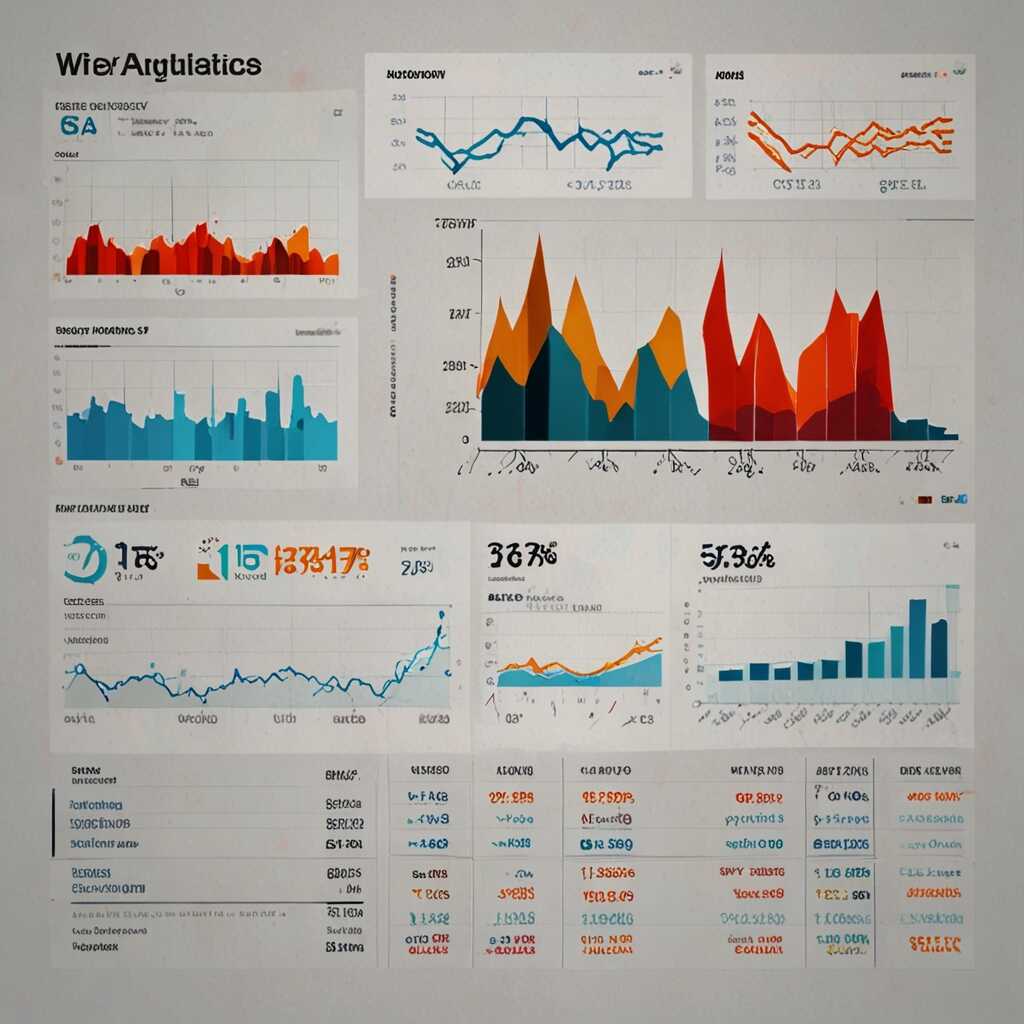Must-know analytics metrics play a crucial role in determining e-commerce SEO success and driving conversions. Understanding these metrics enables online store owners and marketers to evaluate their strategies effectively and make informed decisions. At Metrics Rule, we focus on essential data that can enhance your e-commerce performance, including keyword analysis, technical SEO, and user engagement metrics.
Introduction to E-Commerce SEO Metrics
E-commerce SEO metrics are key performance indicators that help business owners evaluate the success of their SEO strategies. These metrics include data on visitor behavior, such as page views, bounce rates, and time spent on the site, which provide insights into how effectively an online store engages customers. Understanding these metrics is essential to improving online store performance and boosting conversion rates. Proven SEO strategies can lead to significant increases in conversions, often reaching as high as 30% when optimized correctly.
Key Metrics for Evaluating E-Commerce SEO Performance
Evaluating e-commerce SEO performance requires focusing on essential metrics like organic traffic, conversion rates, and bounce rates. Organic traffic indicates how many visitors arrive at your site through search engines, while conversion rates show the percentage of visitors who complete a purchase. Bounce rates, on the other hand, reveal whether website visitors find your content engaging. Metrics Rule, based in Vancouver, emphasizes using analytics metrics to enhance overall site performance. Consistent testing and optimization based on data can significantly improve your online store’s visibility and sales efficiency.
Essential Analytics Metrics for E-Commerce SEO Performance
To evaluate e-commerce SEO performance, focusing on key metrics is essential. Begin with e-commerce SEO metrics, which include organic traffic, conversion rates, and keyword performance indicators. These metrics help assess how effectively your site attracts visitors through search engines and converts those visits into sales. Using tools like Google Analytics or SEMrush, you can analyze traffic sources and user behavior to enhance your online store’s performance. Additionally, monitoring engagement metrics such as bounce rates offers insights into customer experience and areas for improvement.
Maximizing Conversion Rates through Data Analysis
Understanding how to maximize conversion rates is crucial for e-commerce success. Analyzing your conversion rate tracking data can reveal valuable trends. Utilize A/B testing to compare variations of product pages, ensuring you adopt changes that improve user experience and drive sales. Utilizing a combination of organic traffic analysis and optimized content strategies enhances your site’s visibility on search engines. As you implement these tactics, monitor your technical SEO evaluation to ensure that your website’s structure supports high performance. This integrated approach can significantly improve your overall conversion efficiency.

Understanding Organic Traffic Sources and Conversion Rates
Identifying key organic traffic sources is essential for understanding their impact on conversion rates. Organic traffic originates from search engine results, social media referrals, content marketing, and other unpaid avenues. Each source plays a distinct role in conversion rates. For example, traffic from high-ranking keywords often leads to higher buying intent compared to visitors from social media platforms. This significant difference in visitor quality can result in varying conversion outcomes, which are vital for measuring your SEO success metrics. Furthermore, the comparison of organic traffic to paid traffic reveals how long-term strategies can enhance overall e-commerce performance.
Comparison of Organic vs. Paid Traffic Conversion Rates
Understanding the differences between organic and paid traffic is essential for effective conversion rate optimization. Generally, organic traffic converts at a higher rate due to its credibility. Users trust results from search engines more than ads. In 2023, the average e-commerce conversion rate from organic traffic is around 2.4%, while paid traffic typically averages at 1.7%. This data analysis technique shows the advantages of focusing on organic sources. Enhancing your content and SEO strategies can lead to improved conversion rates and better overall performance for your e-commerce site.
Essential Numerical Indicators for Performance Assessment
- 73% of online shoppers abandon their carts before purchasing.
- The average conversion rate for e-commerce sites is around 2.86%.
- 51% of consumers consider page speed an important factor in their purchase decisions.
- SEO strategies can lead to a 14.6% close rate from leads to sales.
- 40% of your revenue could come from just 8% of your visitors.
- 75% of users never scroll past the first page of search results.
- 43% of e-commerce traffic comes from search engines, emphasizing SEO’s importance.

Key User Engagement Metrics Impacting SEO
User engagement metrics, such as bounce rate and average session duration, are essential for evaluating SEO performance. A higher bounce rate indicates that visitors leave your site quickly, which can negatively impact your search engine rankings. Improving average session duration can enhance user experience, encouraging purchases and repeat visits. For e-commerce sites, aiming for an average session duration of at least 2 minutes can lead to better SEO outcomes. Metrics Rule emphasizes the importance of regularly analyzing these factors for a successful e-commerce SEO strategy.
Understanding the Impact of Bounce Rate on SEO
Bounce rate measures the percentage of visitors who leave your site after viewing only one page. High bounce rates can signal to search engines, like Google, that your content may not be relevant or engaging. To improve SEO performance, it’s crucial to reduce your bounce rate by creating quality, engaging content. This content should be relevant to your keywords and designed to keep visitors on your site longer, which will result in improved rankings and user satisfaction. Effective strategies include optimizing landing pages, enhancing mobile usability, and ensuring fast loading times.

Leveraging Google Analytics for Deeper SEO Insights
E-commerce businesses can utilize Google Analytics to enhance their SEO strategies by tracking essential metrics that indicate website performance. Key features such as real-time data monitoring help identify page effectiveness, while event tracking offers insights into user interactions. Additionally, analyzing keyword performance can uncover search terms driving traffic. Monitoring bounce rates is particularly essential as reducing them leads to improved SEO rankings and increased conversions.
Exploring Essential Google Analytics Features for E-commerce SEO
Google Analytics includes features designed to boost e-commerce SEO performance. The conversion tracking tool helps analyze the effectiveness of specific keywords and landing pages. This aids in understanding which keywords deliver reliable traffic and enhance overall conversion rates. Furthermore, custom reports can be created to focus on important metrics related to SEO insights. By leveraging these features, e-commerce businesses can make informed decisions that lead to proven results in their SEO efforts, ultimately improving their online presence and sales.
Key Advantages of Measuring Digital Strategies
- Identifying successful SEO tactics directly enhances your store’s visibility.
- Analyzing performance helps you adjust tactics to boost organic traffic.
- Understanding user behavior leads to improved customer experience and satisfaction.
- Tracking metrics enables data-driven decisions that support strategic growth.
- Uncovering conversion blockers allows you to optimize the purchasing process.
- Regular evaluations help you remain competitive in the ever-changing e-commerce landscape.
- Setting clear performance benchmarks aids in goal alignment for your team.

Implementing A/B Testing for Effective SEO Strategies
A/B testing is a powerful technique to enhance e-commerce SEO strategies. By comparing two versions of a webpage, you can see which performs better. Start by identifying key metrics like click-through rates, bounce rates, and conversion rates. This helps ensure that you focus on essential elements of your e-commerce site optimization. Effective A/B testing includes using data and analytics for a reliable comparison. A good practice is to run tests for at least two weeks to gather significant results. This allows you to make data-driven decisions that enhance SEO performance significantly.
Key Metrics for A/B Testing in E-Commerce
When conducting A/B testing for e-commerce sites, focus on key metrics that provide insight into user behavior. These metrics include conversion rates, average order value, and session duration. By comparing these data points, you can discover which variations of your website design or copy drive better results. Reliable testing provides evidence to understand why certain changes help users engage more with your site. As you analyze A/B testing results, always aim for improvements that lead to more sales and enhanced user experience.
Competitor Analysis as a Tool for SEO Enhancement
Competitor analysis is essential for SEO success in the e-commerce sector. By examining competitors, you can identify successful e-commerce strategies, understand their keyword targeting, and assess their website performance. This helps you enhance your own SEO tactics to outperform them. Studies show that about 60% of e-commerce businesses successfully implement competitor analysis for SEO improvement, leading to a boost in traffic and sales. Tools like Google Analytics can help track competitor performance, offering data-driven insights that drive your enhancements.
Strategies for Effective Competitor Analysis in E-Commerce
To excel in the e-commerce landscape, understanding competitors’ SEO strategies is crucial. Start with comprehensive market research to evaluate competitors’ keyword strategies and backlink profiles. Tools like Semrush or Ahrefs provide data-driven results that highlight competitors’ strengths and weaknesses. This allows you to adapt and refine your e-commerce strategies effectively. Additionally, leveraging competitor insights helps identify gaps in your own approach, providing an opportunity to enhance your SEO performance and boost conversion rates significantly.
Relevant Brands and Their User Engagement Insights
- Shopify is popular for its user-friendly interface and vast app integrations; it simplifies SEO for users.
- WooCommerce offers flexibility for tech-savvy users but may require deeper SEO knowledge.
- BigCommerce provides built-in SEO tools but may lack customizability compared to others.
- Magento focuses on large-scale businesses, offering advanced features at the cost of complexity.
- Squarespace appeals to creative small businesses but may have limited SEO capabilities.
- eCommerce platforms like Wix serve beginners well with easy setups but offer basic SEO functionalities.
- Amazon’s platform is great for product visibility but leaves little room for individual brand identity.
Upcoming Trends in E-Commerce SEO Analytics
In the rapidly evolving world of e-commerce, staying aware of upcoming trends is essential for robust SEO analytics. One major trend is the increased utilization of AI in e-commerce SEO metrics. AI can help automate processes, providing insights that enhance decision-making. As AI technology matures, businesses will likely see improved reliability in their analytics. Moreover, by 2025, it is anticipated that over 60% of e-commerce companies will invest in advanced analytics tools. This shift will enable businesses to test and enhance their SEO strategies more systematically and effectively, ensuring they stay competitive.
Exploring the Impact of AI on E-Commerce SEO Metrics
AI is designed to transform how e-commerce businesses approach SEO metrics. By processing large data sets quickly, AI provides insights that help businesses optimize their online performance. For example, AI-driven tools can analyze user behavior, enhancing the understanding of what drives conversions. This understanding helps businesses make data-driven decisions, improving their overall SEO efforts. As more e-commerce companies leverage AI, it will continue to be a vital component for success in the competitive landscape of online retail.
